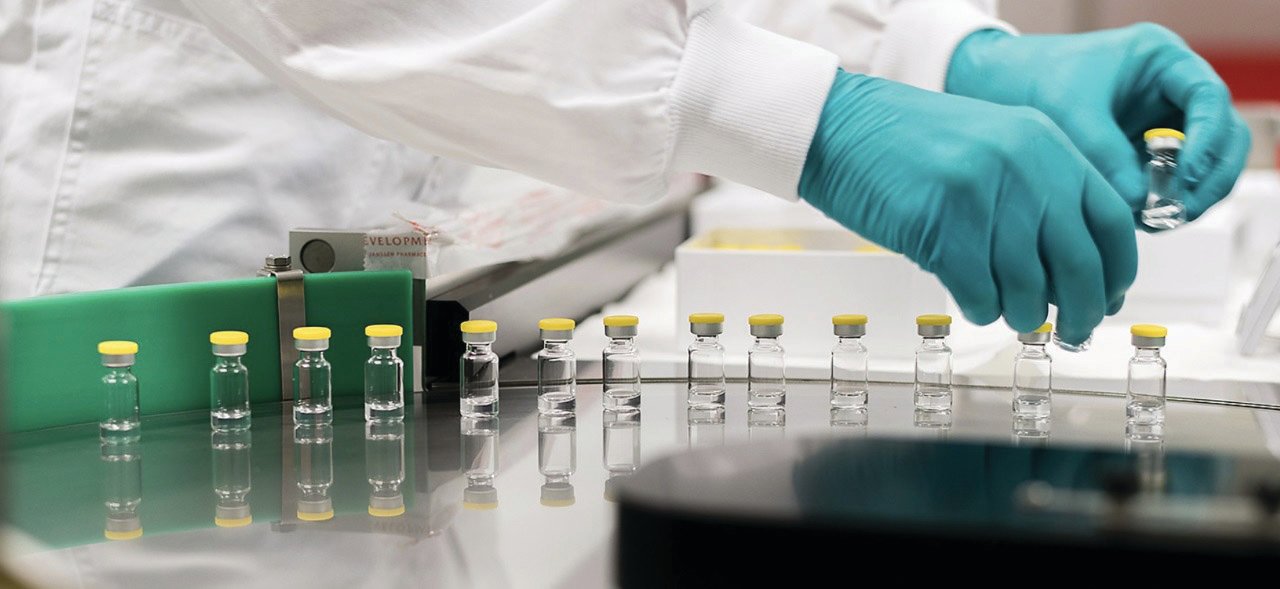Experts: Pick first available COVID-19 vaccine that’s available
Edict comes as Johnson & Johnson joins the fight
CLAY COUNTY — Comparing the Johnson & Johnson vaccine to the Moderna and Pfizer vaccines is like comparing apples to orange, and yet, it’s still happening.
Everyone should, of course, consult …
This item is available in full to subscribers.
Attention subscribers
To continue reading, you will need to either log in to your subscriber account, or purchase a new subscription.
If you are a current print subscriber, you can set up a free website account and connect your subscription to it by clicking here.
If you are a digital subscriber with an active, online-only subscription then you already have an account here. Just reset your password if you've not yet logged in to your account on this new site.
Otherwise, click here to view your options for subscribing.
Please log in to continueDon't have an ID?Print subscribersIf you're a print subscriber, but do not yet have an online account, click here to create one. Non-subscribersClick here to see your options for subscribing. Single day passYou also have the option of purchasing 24 hours of access, for $1.00. Click here to purchase a single day pass. |
Experts: Pick first available COVID-19 vaccine that’s available
Edict comes as Johnson & Johnson joins the fight
CLAY COUNTY — Comparing the Johnson & Johnson vaccine to the Moderna and Pfizer vaccines is like comparing apples to orange, and yet, it’s still happening.
Everyone should, of course, consult with their doctor about what vaccine is best for them, but the bottom line is that each of the FDA emergency-use-authorized approved vaccines are bringing the country closer to the herd immunity scientists are chasing. That’s why you shouldn’t fret much about getting any of the vaccines.
“My message is very simple: don’t wait for a particular vaccine,” Mayo Clinic CEO, Dr. Gianrico Farrugia, told CNBC. “Get the first vaccine that is offered because their benefits far outweigh any potential risk.”
That’s a sentiment echoed by top medical leaders, including White House health lead, Dr. Anthony Fauci, the World Health Organization, the Centers for Disease Control and Prevention and likely your very own local doctor. Getting a vaccine is about protecting yourself, but it’s also about the greater goal of reaching herd immunity. The more vaccines doled out, the closer the country gets to herd immunity, which is essentially the win against COVID-19 the country needs.
Let’s break down the differences. The Johnson & Johnson vaccine is a DNA-based vaccine that uses an adenovirus, which carries a gene from the coronavirus into human cells, according to the company. The cells then produce coronavirus proteins to mimic the virus, which helps your immune system create a battle plan to fight off the virus.
The Moderna and Pfizer vaccines are mRNA-based vaccines. Once the mRNA is inside your body, it tells your cells to make a protein. That protein is from the coronavirus and your cells work to create a battle plan against that protein and virus. All three vaccine options do not give you the coronavirus nor do they inject the virus into you. They simply inject a small piece of the virus into your body.
The Moderna vaccine is 94.1% effective at preventing symptomatic COVID-19 after the second dose, according to the CDC. The Pfizer vaccine is 95% effective at preventing symptomatic COVID-19 after two doses. The Johnson & Johnson vaccine is 72% effective against moderate to severe COVID-19 infections in the United States, 28 days after the one and only shot you receive with this vaccine.
It’s easy to see those numbers and think, “I want the Moderna or the Pfizer; not the Johnson & Johnson vaccine,” but the numbers aren't as comparable. For starters, the Moderna and Pfizer vaccine numbers are based on trials completed much earlier than the Johnson & Johnson vaccine, and they were tested against the earlier, weaker strains of COVID-19.
The Johnson & Johnson vaccine, however, was tested against worldwide strains in places like South America, South Africa and the United States, according to the company. The strains seen in places like South America and South Africa are much tougher than the strains seen in America, so it makes sense the Johnson & Johnson vaccine had a tougher time fighting against COVID-19.
Another point to make is that 72% is still highly effective. Sometimes the yearly flu vaccine is significantly less affective, and it still gets the job done. Seventy-two percent doesn’t look compared to 95%, but the reality is that those two numbers just aren’t that easily comparable.
You should consult your doctor or physician about the ingredients to ensure you’re not allergic to any vaccine ingredients, and then choose the first vaccine available to you. All three vaccines prevented death from COVID-19 and virus severity resulting in a hospital visit in the trials, which is another way of saying if you have the vaccine and have waited the appropriate amount of days afterward for it to be effective, if you somehow were to get COVID-19, it would be a sickness that should be more manageable at home.
All three of these vaccines are highly effective against COVID-19, prevent COVID-19-related death and hospital visits, and getting one of them, no matter which one, will help the country reach the highly coveted herd immunity.








